Booked plane tickets? Here’s 8 travel truths
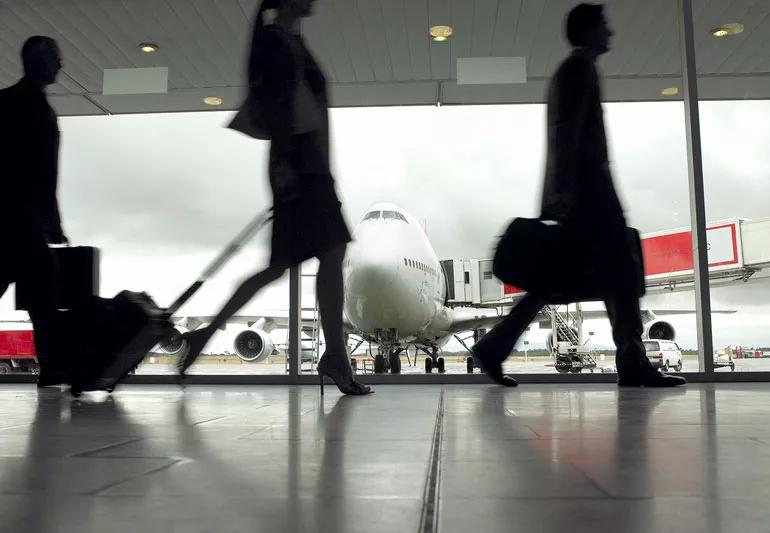
We all know someone who flew home from vacation with an unexpected souvenir: a cold or virus. It may seem like flying can make you sick, but that’s not necessarily true. You can take precautions to help decrease your risks of catching something while on an airplane.
Advertisement
Cleveland Clinic is a non-profit academic medical center. Advertising on our site helps support our mission. We do not endorse non-Cleveland Clinic products or services. Policy
“It’s better to be guided by data than to rely on hearsay,” advises infectious disease specialist Steven D. Mawhorter, MD. “People perceive that gas prices always go up before holiday weekends — but data tells us that prices go up and down equally before holidays. The same selective recall can be true with air travel and sickness.”
Below, Dr. Mawhorter weighs in on eight common beliefs about air travel and our health.
False. Sitting on the tarmac, the air inside a plane may seem stuffy because it’s recirculated (through high-efficiency particle HEPA filters) to prevent us from smelling fuel. That changes once you get to high altitudes. Half the air in an airplane at 35,000 feet is coming in from outside the plane and is absolutely sterile. (It has no microbes!) The rest of the air is filtered with high-efficiency-particle HEPA filters similar to those used in critical hospital areas. And flight attendants do not get sick more often than the general public.
Not necessarily. You may be exposed to an illness if you are sitting immediately next to, in front of or behind someone with a cold, the flu or (in rare cases) something more serious. However, according to the Centers for Disease Control and Prevention, illness as a direct result of air travel is uncommon. Discuss the yearly flu vaccine with your healthcare provider. It may help prevent influenza even if you’re exposed.
Advertisement
Not if you’re careful. If you cover your cough, wash your hands and keep your hands away from your face, your chances of catching (or spreading) germs decreases. Using hand sanitizer after touching surfaces touched by others is also recommended to help prevent illness. (Just make sure your bottle is less than the 3.4 oz/100 ml allowed by safety guidelines!) Hand-sanitizer towelettes also offer an easy, airplane-friendly way to keep your hands clean and reduce your risks.
Possibly. The increased mingling of people in an airport does present some risk. You’re likely to be in contact with more people — and more potentially contaminated surfaces — than normal as you are being processed for a flight or walking through a concourse. This is the most important time to keep hands clean with soap and water or hand-sanitizer.
True. A recent study found that the likelihood of developing a cold was greater with less than seven hours of sleep, compared with eight or more hours of sleep. Think about how you might get more rest before, during and on your way home from a trip. If you don’t plan ahead, it’s all too easy to stay up late the night before travel. For long flights, sleep masks, earplugs or noise-canceling headphones and a small pillow can help you sleep.
Not likely. A popular vitamin-mineral-and-herb supplement claims to reduce risks of infection while flying, but no data support those claims. Small supplemental doses of vitamin C or D won’t hurt you, but practicing good hand hygiene will pack more of a punch in preventing infection.
False. A lot of folklore exists about caffeine and carb-loading, but no data show that any jet-lag “remedies” actually work. One thing that won’t help is drinking alcohol to fall asleep on a plane. Drinking enhances dehydration, plus dehydration worsens jet lag.
False. Anxiety won’t make you ill, but it will certainly put a damper on your travels. Take the proactive prevention measures mentioned above to protect yourself and reduce stress.
Advertisement
Learn more about our editorial process.
Advertisement

Making a health plan with your doctor before you leave will make it easier to sit back and enjoy your flight

Among other benefits, a little time away can help make you more creative, decisive and focused

Setting realistic expectations and scheduling downtime can help reduce stress and make your time away more enjoyable

Dress baby in layers, gate-check your stroller and bring noise-canceling headphones
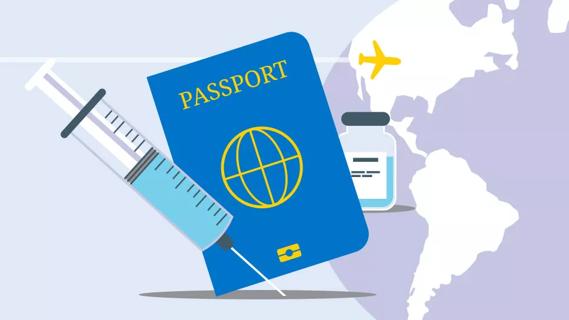
Plan early — getting the right vaccines can help you stay healthy on your travels
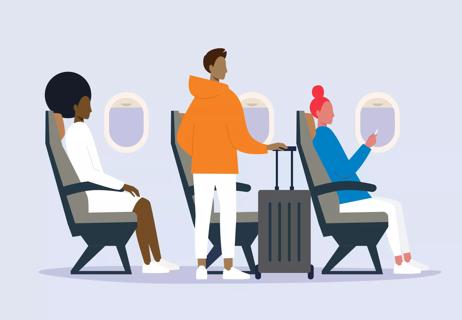
Flying can cause dehydration and bloating and make you feel tired and stressed
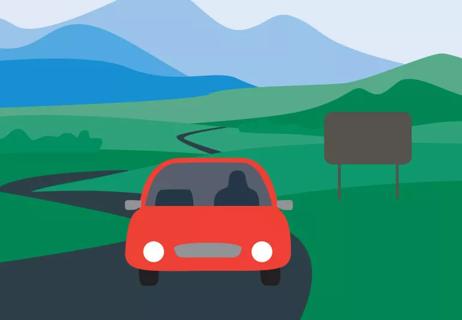
When the drive is familiar or monotonous, ‘procedural memory’ can take the wheel
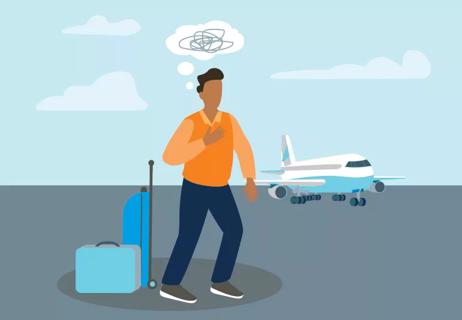
Create a checklist, reflect on your needs and ask for help when unexpected delays occur

Wearing a scarf, adjusting your outdoor activities and following your asthma treatment plan can help limit breathing problems

Your diet in the weeks, days and hours ahead of your race can power you to the finish line

When someone guilt trips you, they’re using emotionally manipulative behavior to try to get you to act a certain way